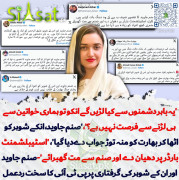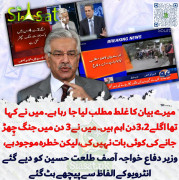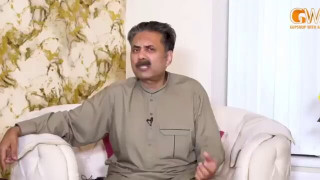QaiserMirza
Chief Minister (5k+ posts)
Why doesnt Allaah answer our duaas?
Read the article to know the answer!
Read the article to know the answer!

Imaam Ibn al-Qayyim (may Allaah have mercy on him) said:
Duaas and taawwudhaat [prayers seeking refuge with Allaah] are like a weapon, and a weapon is only as good as the person who is using it; it is not merely the matter of how sharp it is. If the weapon is perfect and free of faults, and the arm of the person using it is strong, and there is nothing stopping him, then he can lay waste the enemy. But if any of these three features is lacking, then the effect will be lacking accordingly.(al-Daa wal-Dawaa, p. 35).
From this it will be clear that there is an etiquette and rulings which must be fulfilled, in the duaa and in the person making the duaa. There are also things that may prevent the duaa reaching Allaah or being answered these things must be removed from the person making the duaa and from the duaa. When all of these conditions are fulfilled, then the duaa may be answered.
1 Sincerity in making duaa.
This is the most important condition. Allaah has commanded us to be sincere when making duaa, as He says (interpretation of the meaning):
So, call you (O Muhammad and the believers) upon (or invoke) Allaah making (your) worship pure for Him (Alone) (by worshipping none but Him and by doing religious deeds sincerely for Allaahs sake only and not to show off and not to set up rivals with Him in worship)
[Ghaafir 40:14]
Sincerity in duaa means having the firm belief that the One upon Whom you are calling Allaah, may He be glorified and exalted is alone Able to meet your need, and it also means avoiding any kind of showing off in your duaa.
2. Repentance and turning back to Allaah.
Sin is one of the main reasons why duaas are not answered, so the person who is making duaa should hasten to repent and seek forgiveness before he makes duaa. Allaah tells us that Nooh (peace be upon him) said:
I said (to them): Ask forgiveness from your Lord, verily, He is Oft-Forgiving; He will send rain to you in abundance, And give you increase in wealth and children, and bestow on you gardens and bestow on you rivers. [Nooh 71:10-12]
3. Beseeching, humbling oneself, hoping for Allaahs reward and fearing His punishment.
This is the spirit, essence and purpose of duaa. Allaah says (interpretation of the meaning):
Invoke your Lord with humility and in secret. He likes not the aggressors [al-Araaf 7:55].
4. Urgently beseeching and repeating the duaa,
without getting exasperated or bored; this is achieved by repeating the duaa two or three times. Restricting it to three times is preferable, in accordance with the Sunnah of the Prophet (peace and blessings of Allaah be upon him). Ibn Masood (may Allaah be pleased with him) narrated that the Prophet (peace and blessings of Allaah be upon him) liked to say a duaa three times and ask for forgiveness three times. This was narrated by Abu Dawood and al-Nasaai.
5. Making duaa at times of ease,
and saying more duaas at times of plenty. The Prophet (peace and blessings of Allaah be upon him) said:
Remember Allaah during times of ease and He will remember you during times of hardship. Narrated by Ahmad.
6. Seeking to draw closer to Allaah by calling upon Him by His Most Beautiful Names and Sublime Attributes at the beginning of the duaa or at the end. Allaah says (interpretation of the meaning):
And (all) the Most Beautiful Names belong to Allaah, so call on Him by them [al-Araaf 7:180].
7. Choosing the clearest and most concise words and the best of duaas. The best of duaas are the duaas of the Prophet (peace and blessings of Allaah be upon him), but it is permissible to say other words according to the specific needs of a person.
Other aspects of the etiquette of making duaa, although they are not waajib (obligatory), are: to face the Qiblah; to make duaa in a state of tahaarah (purity); to start the duaa with praise of Allaah and blessings upon the Prophet (peace and blessings of Allaah be upon him). It is also prescribed to raise the hands when making duaa.
One of the things that helps to bring a response to duaa is to seek the best times and places.
Among the best times is the time just before Fajr (dawn), the last third of the night, the last hour of Jumuah (Friday), when rain is falling, and between the Adhaan and iqaamah.
Among the best places are mosques in general, and al-Masjid al-Haraam [in Makkah] in particular.
Among the situations in which duaa is more likely to be answered are: when one is mistreated or oppressed, when one is travelling, when one is fasting, when one is in desperate need, and when a Muslim makes duaa for his brother in his absence.
Things which may prevent duaa from being answered include:
1. When the duaa is weak in itself, because it involves something inappropriate, or involves bad manners towards Allaah, may He be exalted, or it is inappropriate, which means asking Allaah for something which it is not permitted to ask, e.g. when a man asks to live forever in this world, or he asks for a sin or something haraam, or he prays that he will die, and so on. Abu Hurayrah (may Allaah be pleased with him) said: The Messenger of Allaah (peace and blessings of Allaah be upon him) said: A persons duaas will continue to be answered so long as he does not pray for something sinful or for the breaking of family ties. Narrated by Muslim.
2. When the person who is making duaa is weak in himself, because he is faint-hearted in his turning towards Allaah. This may be either because of bad manners towards Allaah, may He be exalted such as raising his voice in duaa or making duaa in the manner of one who thinks he has no need of Allaah; or because he pays too much attention to the wording and tries to come up with unnecessarily ornate phrases, without paying attention to the meaning; or because he tries too hard to weep or shout without really feeling it, or he goes to extremes in that.
3. The reason why his duaa is not answered may be because he has done something that Allaah has forbidden, such as having haraam wealth whether it be food or drink or clothing or accommodation or transportation, or he has taken a haraam job, or the stain of sin is still in his heart, or he is following bidah (innovation) in religion, or his heart has been overtaken by negligence.
4. Consuming haraam wealth. This is one of the major reasons why duaas are not answered. Abu Hurayrah (may Allaah be pleased with him) said: the Messenger of Allaah (peace and blessings of Allaah be upon him) said: O people, Allaah is Good and only accepts that which is good. Allaah commanded the pious to follow the same commandments as He gave to the Messengers. He says (interpretation of the meaning)
O (you) Messengers! Eat of the Tayyibaat [all kinds of Halaal (lawful) foods which Allaah has made lawful (meat of slaughtered eatable animals, milk products, fats, vegetables, fruits)] and do righteous deeds. Verily, I am Well-Acquainted with what you do [al-Muminoon 23:51]
O you who believe (in the Oneness of Allaah Islamic Monotheism)! Eat of the lawful things that We have provided you with [al-Baqarah 2:172]
Then he mentioned a man who has travelled on a long journey and is dishevelled and covered with dust; he stretches forth his hands to the heaven, (saying) O Lord, O Lord, but his food is haraam, his drink is haraam, all his nourishment is haraam, so how can he duaa be accepted? Narrated by Muslim.
The man described by the Prophet (peace and blessings of Allaah be upon him) had some of the characteristics which help duaas to be answered he was travelling and he was in need of Allaah, may He be exalted and glorified but the fact that he consumed haraam wealth prevented his duaa from being answered. We ask Allaah to keep us safe and sound.
5. Trying to hasten the response. Abu Hurayrah (may Allaah be pleased with him) said: the Messenger of Allaah (peace and blessings of Allaah be upon him) said: The duaa of any one of you will be answered so long as he is not impatient and says, I made duaa but it was not answered. Narrated by al-Bukhaari and Muslim.
6. Making the duaa conditional, such as saying, O Allaah, forgive me if You will or O Allaah, have mercy upon me if You will. The person who makes duaa has to be resolute in his supplication, striving hard and earnestly repeating his duaa. The Prophet (peace and blessings of Allaah be upon him) said: Let not any one of you say, O Allaah, forgive me if You will, O Allaah, have mercy on me if You will. Let him be resolute in the matter, whilst knowing that no one can compel Allaah to do anything. Narrated by al-Bukhaari and Muslim.
In order for duaas to be answered, it is not essential to adhere to all of these points and be free of all that could prevent ones duaas from being answered. That is something which happens very rarely. But one has to try hard and strive towards achieving this.
Another important point is to realize that the response to the duaa may take different forms: either Allaah will respond and fulfil the desire of the person who made the duaa, or He will ward off some evil from him because of the duaa, or He will make something good easy for him to attain because of it, or He will save it with Him for him on the Day of Resurrection when he will be most in need of it. And Allaah knows best.




























